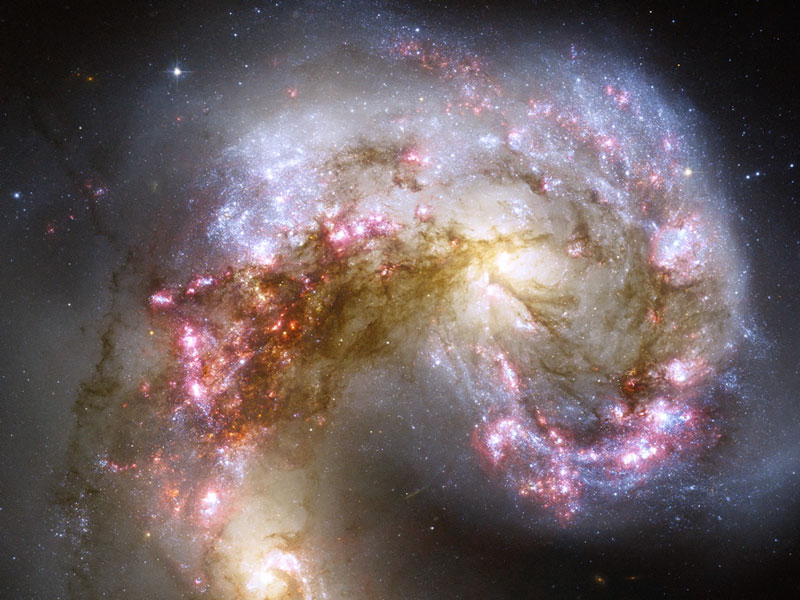The Antennae Galaxies in Collision

Explanation:
Two galaxies are squaring off in
Corvus
and
here are the latest pictures.
When two
galaxies collide, however, the stars that compose them usually do not.
This is because galaxies are mostly empty space and, however bright, stars only take
up only a small amount of that space.
During the slow, hundred million year
collision,
however, one galaxy can rip the other apart gravitationally, and
dust and
gas common to both galaxies does collide.
In the
above clash of the
titans, dark
dust pillars mark massive
molecular clouds are being compressed during the
galactic encounter, causing the rapid birth of millions
of stars,
some of which are gravitationally bound together in
massive star clusters.
Authors & editors:
Robert Nemiroff
(MTU) &
Jerry Bonnell
(USRA)
NASA Web Site Statements, Warnings,
and Disclaimers
NASA Official: Jay Norris.
Specific
rights apply.
A service of:
LHEA at
NASA /
GSFC
& Michigan Tech. U.

